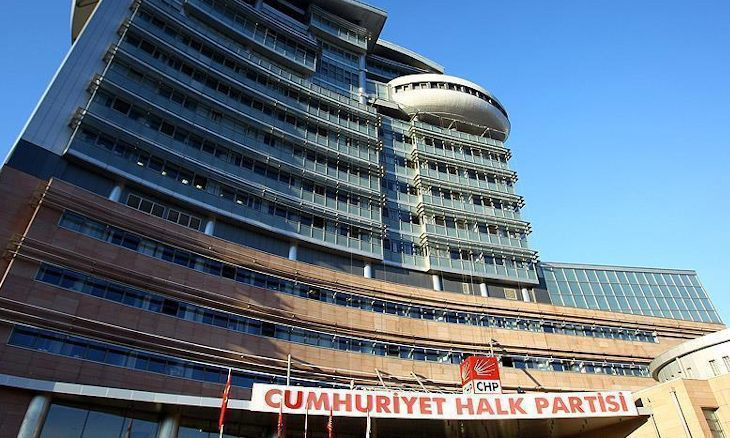CHP refers three members to disciplinary board with expulsion demand
Turkey’s main opposition Republican People’s Party (CHP) executive board has referred three of its members to the disciplinary committee with an expulsion demand after they appeared on CNN Türk and A Haber despite a boycott decision.
Duvar English
Turkey's main opposition Republican People's Party (CHP) has referred three of its members to the party disciplinary board with an expulsion demand after they appeared on television programs on CNN Türk and A Haber.
These members are former CHP deputy Mehmet Sevigen, former CHP deputy Dursun Çiçek's daughter İrem Çiçek and former Istanbul Bar Association head Ümit Kocasakal.
 Main opposition CHP announces boycott of CNN Türk
Main opposition CHP announces boycott of CNN TürkThe CHP's move came after it formally announced last week that it was boycotting CNN Türk due to its biased coverage against the party.
In line with the boycott decision, CHP members, from party leaders to regular members, “will no longer appear on CNN Türk and take part in their programs,” CHP deputy chair Tuncay Özkan said during a press conference at the party headquarters on Feb. 6.
Özkan also likened CNN Türk to the pro-government news channel A Haber during the press conference, saying that it now acts as the “propaganda tool” of the government.
Despite the party's decision, Kocasakal and Çiçek appeared on two different programs of CNN Türk, whereas Sevigen appeared on a program of A Haber.
Lawyer İrem Çiçek on Feb. 13 defended her appearance on CNN Türk, saying: “Instead of expelling, they [the CHP] should have thought 'How can I bring in the youth to the party?' I should have appeared on every TV channel on the day that President [Recep Tayyip Erdoğan] targeted my father.”
İrem Çiçek was referring to the lawsuits launched by the ruling Justice and Development Party, of which Erdoğan is the chair, against her father Dursun Çiçek, a retired colonel who spent many years behind bars due to the Ergenekon trial.
The lawsuits launched by six AKP deputies concern Çiçek's accusations that some former as well as current AKP politicians formed the “political leg” of the Gülen movement over their role in drafting a 2009 bill which paved the way for civilian courts to try military personnel.
